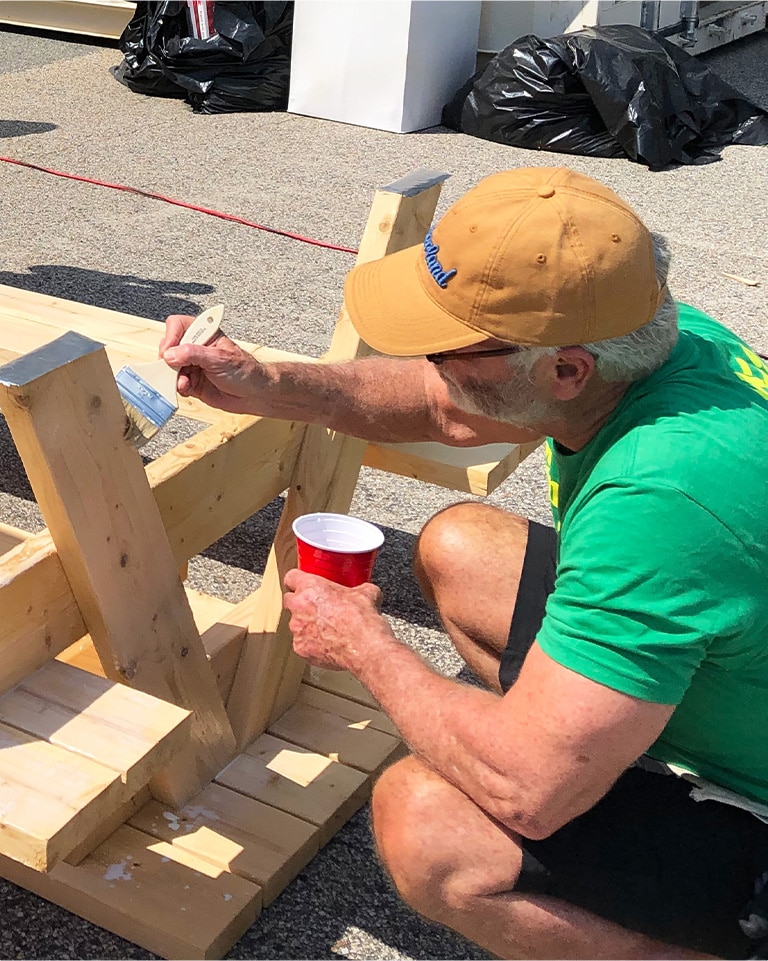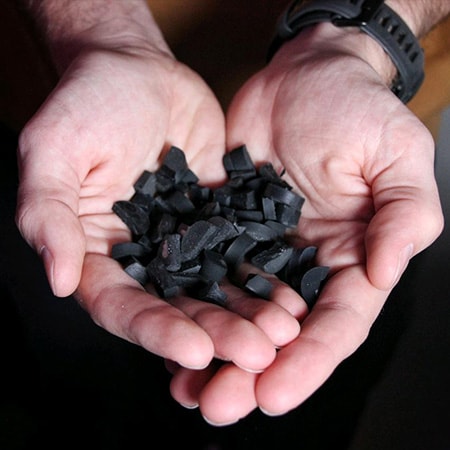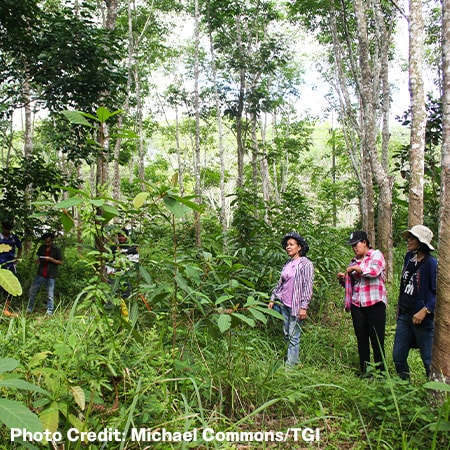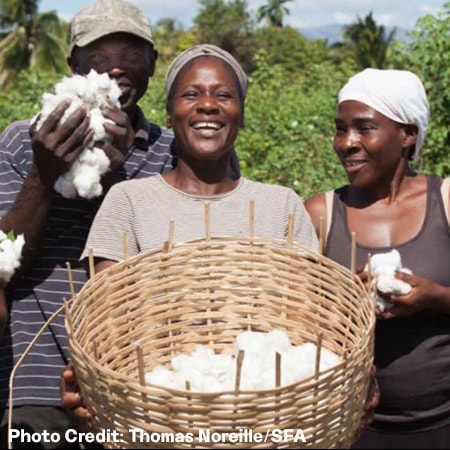
responsibility
At the heart of the Timberland® brand is a vision for a greener and more equitable future. This comes to life through a decades-long commitment to make products responsibly, protect the outdoors, and strengthen communities around the world.
sustainable materials
At Timberland, we know that a greener future starts with greener products. That’s why we’ve built a robust portfolio of recycled, renewable and regenerative materials to deliver on our commitment to quality and durability.
 recycled
recycled
Recycled materials have been reprocessed from reclaimed waste material by means of a manufacturing process and made into a final material or component.
 regenerative
regenerative
Regenerative is a term that encompasses a variety of environmentally and socially conscious practices which aim to help promote biodiversity, enhance water cycles, improve soil health, and sequester carbon. As defined by PUR Projet (nature-based project developers), these practices are intended to create net beneficial impacts for ecosystem services, farmers, and local communities.
 renewable
renewable
Responsibly sourced renewable materials are derived from inputs that naturally replenish in a human’s lifetime and are derived using feedstocks and processing methods that follow proven sustainable practices with the intention of reducing potential impacts on people and planet.

Timberloop™ Takeback program
Circular business models are the future of fashion, and in 2022, we introduced the Timberloop™ platform to address our full product lifecycle. We invite you to send back your old Timberland® products when you are no longer able to use them. Through our Timberloop™ Takeback program, you can return your old gear in all US retail and outlet stores or by mail using a prepaid label. We will evaluate them and recycle through our partners. In return, you will receive a 20% off discount code to use on your next Timberland® purchase.

TIMBERLOOP™ GO ROAM SNEAKER, DESIGNED FOR CIRCULARITY.
Our industry-recognized Timberloop™ Designed for Circularity products use a unique sole construction in which the outsoles can be removed with the cut of one seam, and each part can be put into its own recycling stream. This new construction method lessens the chemical-based cements used in the manufacturing process. To help make this vision of circularity a reality, be sure to send this product back once you’re done wearing it!
DESIGNED WITH PEOPLE & PLANET IN MIND

path of service™ program
One of the ways Timberland strengthens communities is through community service. Since 1992, Timberland’s Path of Service™ program has provided Timberland® employees with paid time to volunteer in their communities. Employees can use their hours at a variety of company-sponsored service events or individually to support causes that speak to their passions. Our largest annual days of service each year are Earth Day in the spring and Serv-a-palooza in the fall. For these two days each year, employees worldwide pull on their boots to make a difference in their local communities. Since 1992, Timberland® employees have served over 1.4 million service hours worldwide.
To learn more about our supply chain, traceability and corporate sustainability goals, please visit vfc.com/responsibility








